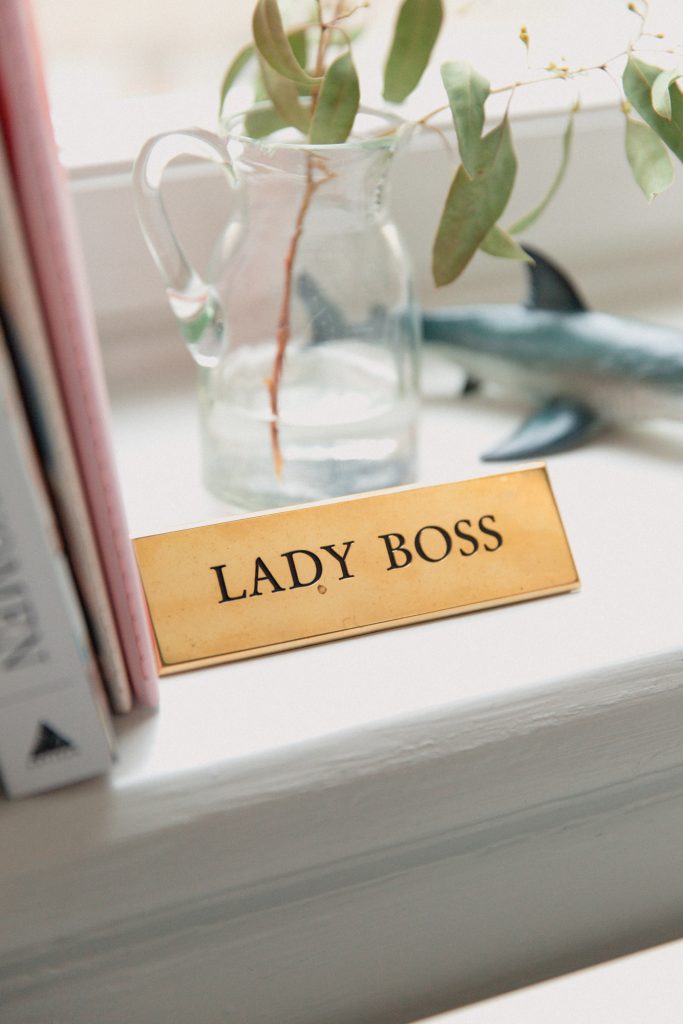Editor Dania Akondo met with Emma Shepherd of Let’s Talk Disability, to discuss her work on disability awareness.
Dania: Thank you so much for taking the time to participate in this interview. I’m very excited to get to know you and what you do, so could you introduce yourself to the readers and tell them about what you do?
Emma: My name is Emma Shepherd and I’m the owner and founder of a small business called Let’s Talk Disability, which is there to support businesses across all of their ED&I functions, but I also specialize in disability and mental ill health. Before that, I had worked in the public sector for about 18 years, between the local authority and the NHS, had an HR background, and worked with people in all kinds of roles who had learning disabilities. For example, I worked on the supported living, day services, and challenging behaviour in residential spaces. Then I had a great opportunity to manage a supported employment service, which was about helping disabled people into paid employment. So, everything I’ve done has been in that kind of arena.
Wow! So, it’s safe to say that throughout your career you’ve managed to not only acquire really good people skills but also expand your knowledge when it comes to disabilities. And to familiarize yourself with the various issues that may come with having a disability, right?
Absolutely. I have a disability myself and recently added a new one to the collection. So, this role is just something that I intrinsically need to enjoy my work life.
I see. So, would you say that your passion for this work is linked to your own disability? I imagine that must have come with certain difficulties.
Yeah, it does. I’ve always had my disability but didn’t really get the opportunity to do this kind of work 20 years ago when my circumstances were sort of slightly different. That’s when I decided I was actually going to do something rather than just think about it and never look back.
That’s great. I’m curious about your collaboration with other businesses and organisations. How does that work? Do you go in and educate them?
It depends. I’ve always been a big networker and I really enjoy networking. It’s one of those things you either love or hate, but I love meeting new people. I’m always interested in new businesses, so networking is something that I’m very interested in – the ability to go and talk to the decision-makers. But, in terms of the bigger picture, sometimes it can be quite difficult to do this work on your own. So, when you link up with other people, it makes it a little bigger and mightier. You can pool resources, funding ideas, and so on because at the end of the day, we all want the same thing. I’m not a naturally competitive person, so to me it makes sense to do things together.
Also very humble, amongst other things. I have to agree with you there: there’s definitely strength in numbers, and at the end of the day it’s about those who have disabilities and how to try and ensure they can lead a better life.
Yeah. When I had the supported employment service, if somebody has a job and I didn’t have anyone suitable, then I’d let other people know about it because I wouldn’t let that opportunity go to waste. I’ve always shared information or ideas that come my way.
I love that. So, how did you get the idea of opening a café for individuals with learning disabilities?
I was on my way shopping with a friend and we were talking about the lack of available support for people in Croydon since the council went bankrupt, of which my employment support service had been one of those casualties. And we were talking about how it’s the residents who experience the biggest impact because there isn’t anything for them. So, I just thought “I’ll do it myself then”. There was also frustration that the few options available were full up with waiting lists, which was something I didn’t want in my version.
So you responded, really, to a need in the community.
Definitely, and there’s still plenty of needs out in the community and I do still feel very passionately for Croydon. I did work there for so many years and I did see so many people trying, for the greater good, to help people. You don’t work in a local authority for money – it’s generally people who want to make a difference.
As someone from Croydon myself, it was quite heartbreaking to see how badly the shortage of services had impacted some of my clients’ lives.
Exactly, and it’s sad for the staff who provide those services as well as the residents who use them.
Very true. So, for the readers who are not aware, could you describe your café in a single sentence?
This is tough, but I’d say it’s a friendly, psychological safe space to go and enjoy a drink.
I love that – it’s warm and addresses something that keeps coming up with my clients too, which is loneliness.
Well especially on the backend of COVID, I’ve seen a lot of people say that they were really feeling isolated and they hadn’t actually left the house or had any friends until they came to the café and joined the Nextdoor group. And the real evidence of the need has been the donations that have come in to keep the café going.
I’m really glad to hear that! I’d like to dig into the café a bit more: what does one get up to on a visit?
I usually have something in mind for each month and that can coincide with a donation drive. In the past, we’ve had afternoon teas, raffles, and plant-growing session. We’ve also had meetings that were more geared toward giving back – a collection for a food bank, knitting, donating books and DVDs. Then there’s the IT bar, which will help you navigate any hardware or software challenges you, for a donation. It’s really great because it helps out those who can’t afford to go to the usual IT repair/help shops, and we do have plans to develop that into a charity fairly soon. Finally, I also do a welfare/benefits one-to-one with people who need it – going through all their information and trying to identify whether they are eligible for any benefits that would help them out. Since I haven’t had someone telling me what to do, it’s grown quite organically and deals with what people want. We’ve had bingo, exercise classes, a nail bar, and a Pride celebration. All kinds of bits.
What I really love is that, again, you’re giving the people a voice. More than that, actually, you’re giving them a platform and giving them a safe space. But how do you ensure that they feel heard and comfortable within the café?
I think it’s established on the basis of the friendship – there’s a lot of banter – between everyone involved. People feel free to move around the large central table and chat openly to one another. All the volunteers and I have been given nicknames, which shows the relaxed atmosphere we have at the café. But it’s very much about keeping people informed of their rights and listening to them when they see content that doesn’t accurately reflect them and their disabilities.
That sounds absolutely amazing – keeping them informed, engaging with them regularly, asking them questions, asking for suggestions, and the layout of the café itself. It all seems to contribute to the open atmosphere you have there. But what do you consider to be the biggest challenges that your patrons have to face?
Some of it is the isolation but at the moment it’s money, really. The cost of living crisis and the impact that it’s having on people. For example, if they’re trying to keep warm because they can’t move around as much. It is very difficult for people right now.
Yeah, we’ve reached this heartbreaking point where people are struggling just to meet their very basic needs here in the UK, whether it’s food, keeping warm, or just paying your bills.
Well we’ve tried to counteract that by charging patrons a single fee of £5, which provides them with any of the food and drinks on offer, as well as whatever activity we’ve organised for the day. If someone wants to contribute more than the £5, then brilliant, but if someone can’t afford it then all they really need to do is speak with me and we’ll sort something out for them. I really don’t want cost to be a barrier for them.
That’s incredible to hear. If we expand our view a bit, I’m curious to hear your opinion on what we as a society could do to help people with learning disabilities feel more included, feel more part of the community?
I really think one of the biggest contributors is work. It does help with someone’s mental health and provides them with independence. It assists in getting out of the house and forming friendships and relationships. Perhaps it’s because I had the supported employment service, but I will always think of work as one of the biggest contributing factors to inclusion. A lot of businesses have been scared to take on disabled people, wondering if they have to get different kinds of insurance, will they be productive enough or just off sick, etc. But when they buy into the supported employment system, their view is changed, and they want to hire even more disabled people. Certainly, with learning disability, the individual is not ill or sick – it’s just a case of someone’s mental health being well managed. And the changes you might put in place at work, from a reasonable adjustment point of view, are changes that would be good for everybody.
I completely agree with what you’ve said. Why shouldn’t people with disabilities be given the same opportunities as those without disabilities? It’s absolutely ridiculous that some companies may focus on the ‘costs’ rather than the benefits of hiring someone with a disability.
Well let’s consider the purple pound, which is the spending power of disabled people and their friends and family and amounts to £274 billion per year. If nothing else, you’ve got a wider pool of talent to draw upon and a market your competitor isn’t considering.
Interesting, but yes, these companies don’t see the bigger picture. I’m curious whether there’s anything else that you’d like the readers to know about you and your mission?
Well for those readers who are business owners or HR partners, they should check out the Let’s Talk Disability website, as it is a business-to-business enterprise and I’m more than happy to provide training.
Great! Well, my final question is about the café: where can we find you and how often does it run?
Right now, it’s only once per month, on the third Saturday of every month in Longheath Community Centre (which is near Elmers End). Feel free to come by and check it out!
Brilliant. Thank you so much for your time, Emma. I really hope that the funding keeps rolling in so the café can keep running indefinitely!


